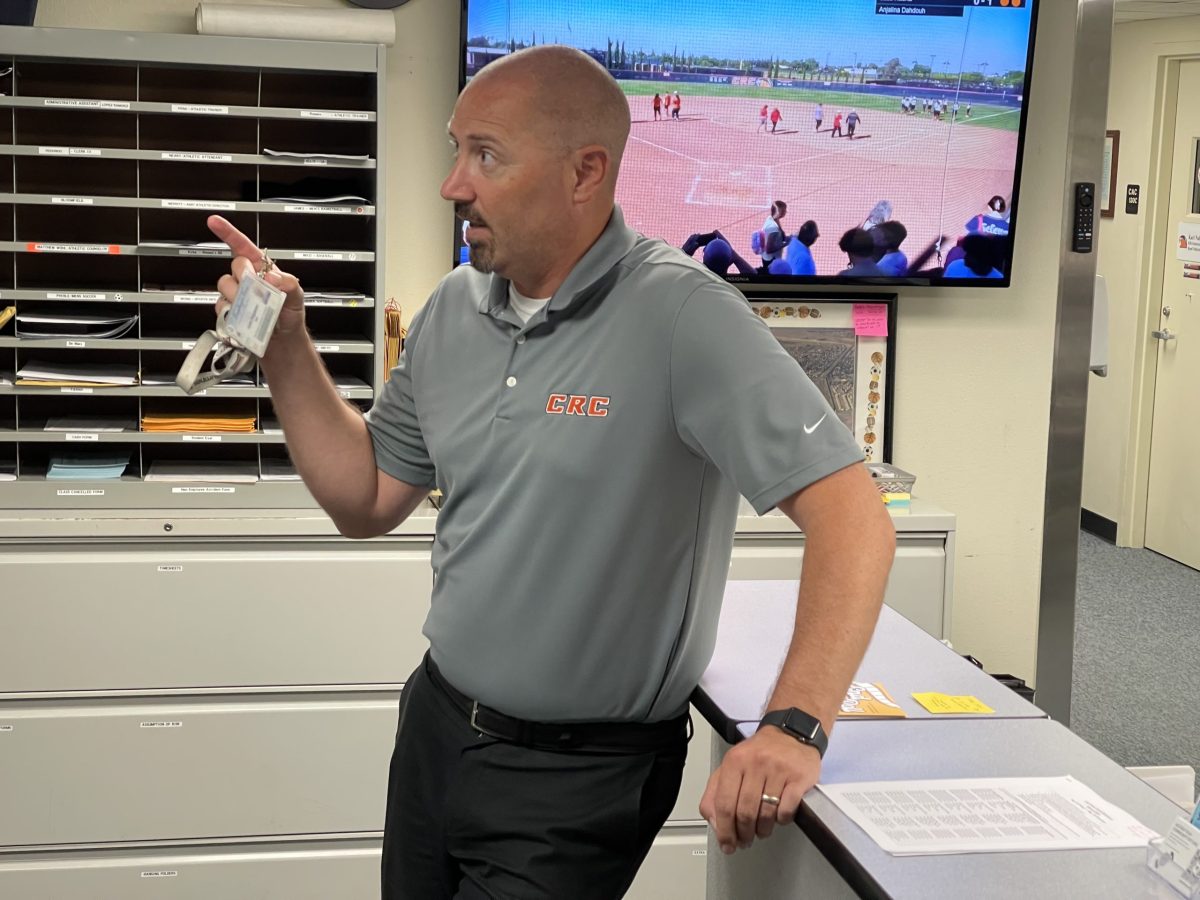When Collin Pregliasco came to Cosumnes River College in 2017 to become the new athletic director and dean of kinesiology, he was looking for an opportunity to have more of a voice in collegiate athletics and believed he could make a bigger difference in community colleges.
He had just come off a one and a half year stint at UC Santa Cruz as the associate athletic director. Pregliasco said this job was an “all-in moment” in his career as the school’s athletic department was at risk of being shut down.
“They had to come up with a self-sustaining budget within a year and a half,” Pregliasco said. “So I knew I’m either going to help save athletics, and then move on or stay there, or I’m going to fail, and who’s going to hire an athletic director who can’t save athletics.”
Pregliasco left the school shortly before the final vote was held on whether athletics at UC Santa Cruz would continue to be funded, but said ultimately, his efforts were successful and the department continues running to this day.
While Pregliasco said he enjoyed his time at a four-year college, he prefers being at the community college level and knew even while back at UC Santa Cruz he eventually wanted to return to Sacramento.
Pregliasco has an extensive background at the two-year level, having previously coached for over 10 years between Mission College and Foothill College in the Bay Area.
Even though he has spent most of his professional career involved in athletics, he said initially he didn’t know his path would lead him to CRC.
“I had no thought in the world that I was ever going to be doing this as a career,” Pregliasco said. “I was getting into teaching and getting my masters degree in childhood development at San Jose State. I had already gotten my bachelors degree and wanted to teach at community colleges.”
Pregliasco said while getting his masters, he began coaching women’s soccer, softball, and field hockey at Prospect High School in Saratoga, California. It was there he was offered a coaching position at Mission College where he coached softball and women’s soccer for two years.
After then serving as the head softball coach and athletic director at Foothill college, Pregliasco said he felt he wanted to make more of an impact in athletics and his plans were not able to be fully realized there.
“You bring stuff to the table. Whether it’s growing programs, growing classes, advertising, or helping with recruiting. You have all these ideas that are just falling through the cracks,” Pregliasco said.
He said coming to CRC gave him the opportunity to have a seat at the table and have more input in how athletics programs are run.
Pregliasco’s efforts are visible to anyone who visits the campus, as it was partly due to his leadership that the school was able to construct a new beach volleyball facility which Pregliasco said is set to be completed on May 22.
The volleyball facility, along with the addition of new pickleball courts, will also serve as educational spaces for students and private programs, he said.
“What’s great is the instructional space side of it,” Pregliasco said. “Plus the rental revenue that we’ll be generating for it. We’re expecting it to pay for itself within 20 years.”
Though massive changes have been seen under Pregliasco’s leadership, he’s the first to say it was a team-effort to see those changes come to life.
“If you’re going to ask my two biggest weaknesses, it’s not celebrating success and not delegating,” Pregliasco said.
In 2022, Pregliasco won the National Athletic Director of the year for the Junior College level. He was nominated by his co-workers at CRC, including athletic counselor Matthew Wohl.
“He’s changed the culture of the program. There’s an open-door policy. He’s very open to hearing our ideas and concerns, and any changes we’re interested in making,” Wohl said. “He was huge in terms of providing a structure of a program during COVID. Everything was out of whack, but it didn’t really feel like that because he was working behind the scenes.”
Pregliasco said he’s most proud of the academic improvements that have been made since his tenure at CRC began.
He said the department put more of a focus on providing athletes with support in their classes, including building an entire online program in conjunction with the I.T. department that allows progress checks for athletes.
These changes, along with allowing athletes priority registration, have proven successful, as Pregliasco said student athletes are now averaging a 3.12 GPA at CRC.
“A lot of our athletes that went on, some of them that came back as assistant coaches, have said that it was better here than where they went,” Pregliasco said. “Just in terms of support, facilities, coaching, you name it. And that’s what we’re trying to create.”
*This article was updated to reflect the proper spelling of athletic counselor Mathew Wohl’s name and the accuracy of his quotes. It also reflects Pregliasco’s timeline more accurately.

